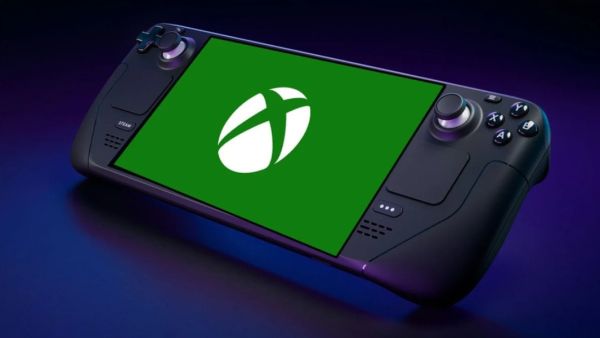
In a recent interview with Bloomberg, Phil Spencer, CEO of Microsoft Gaming, finally put an end to months of speculation by confirming that the company has concrete plans to create an Xbox handheld gaming device. This announcement reflects a broader shift in Microsoft Gaming’s strategy toward mobile and portable gaming. As Spencer highlighted, Microsoft’s vision includes tapping into the mobile gaming market and delivering Xbox experiences on the go, aligning with its ongoing efforts to expand accessibility through Game Pass and Cloud Gaming.
The handheld device concept isn’t a new idea for Spencer, who has often expressed his admiration for portable consoles. However, this confirmation marks the first time he has committed to the development of an Xbox-branded handheld, a move set to intensify competition with industry giants like Nintendo and Sony, who have a longstanding dominance in the handheld gaming space.
This significant announcement comes on the heels of recent layoffs in Microsoft’s gaming division, with 650 employees released in 2024, bringing the total number of gaming sector layoffs this year to 2,550. Despite the workforce reduction, Microsoft Gaming is doubling down on its ambition to expand, especially in the mobile gaming sector. Spencer hinted at potential acquisitions or partnerships to strengthen Microsoft’s presence in this space, although he refrained from specifying any targets. These acquisition plans follow Microsoft’s landmark $69 billion purchase of Activision Blizzard in 2023, a move primarily intended to bolster its gaming portfolio.
Microsoft’s latest restructuring and investment plans underline its commitment to evolve with the industry’s increasing shift towards mobile gaming. The company is reportedly exploring options to acquire a mobile gaming company to further accelerate its growth, a direction that many industry insiders speculate is due to the potential profitability and reach of the mobile gaming market.
One of the biggest questions facing Microsoft Gaming is how an Xbox handheld device will stack up against well-established competitors. Nintendo, for instance, has a years-long head start in the portable console arena, with its Nintendo Switch and Switch Lite dominating the market. Spencer acknowledged the stiff competition and admitted that the company is taking a cautious approach to avoid rushing into a saturated market.
Microsoft is already heavily invested in making Xbox games accessible on mobile devices through the Xbox app, with titles available for play on smartphones and tablets via the Game Pass Ultimate subscription. By leveraging its Cloud Gaming technology, Microsoft has ensured that gamers can enjoy a vast library of Xbox titles without needing a console or high-end PC, which has paved the way for potential expansion into handheld hardware.
As Microsoft Gaming works towards creating a dedicated handheld console, Spencer emphasized that a priority for the team will be refining the Xbox app experience on existing mobile platforms. This refinement will involve partnerships with hardware manufacturers to optimize the Xbox experience on various devices, enhancing performance, connectivity, and synchronization to make Xbox gaming more seamless across all screens. Spencer envisions Xbox as a “device-agnostic” platform that can run smoothly on various hardware configurations, further solidifying Xbox’s ecosystem of connected gaming experiences.
Game Pass and Cloud Gaming remain at the core of Microsoft’s strategy. Spencer confirmed that his team is committed to optimizing Cloud Gaming on current mobile hardware to gain valuable insights for future handheld products. While Xbox Cloud Gaming already supports several platforms, improvements in latency, connectivity, and user experience are on the roadmap, which could inform the functionality of the upcoming Xbox handheld console.
Although the concept of an Xbox handheld has finally been confirmed, Spencer clarified that any physical device is still several years away from release. Microsoft Gaming is reportedly experimenting with prototypes, but Spencer insists that a future handheld must align with Xbox’s overarching strategy. This measured approach is indicative of Microsoft’s cautious expansion into new hardware markets, recognizing the importance of ensuring that a handheld console would add value to Xbox’s established ecosystem of gaming products.
For now, Xbox fans can expect further developments in Microsoft’s mobile and cloud gaming offerings, with a refined Xbox app experience on the horizon. While the handheld device may still be experimental, Spencer’s commitment signals an exciting future for Xbox in the mobile gaming market.